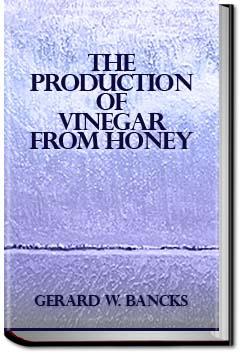UNLIMITED Audiobooks and eBooks
Over 40,000 books & works on all major devices
Get ALL YOU CAN for FREE for 30 days!
The Production of Vinegar from Honey
Gerard Bancks
Book Overview:
For table use, for sauces and salads, where delicacy of flavor is appreciated, and for medicinal purposes where pureness and wholesomeness are essential, I venture to say that no vinegar can be compared with that produced from Honey.
For table use, for sauces and salads, where delicacy of flavor is appreciated, and for medicinal purposes where pureness and wholesomeness are essential, I venture to say that no vinegar can be compared with that produced from Honey.
How does All You Can Books work?
All You Can Books gives you UNLIMITED access to over 40,000 Audiobooks, eBooks, and Foreign Language courses. Download as many audiobooks, ebooks, language audio courses, and language e-workbooks as you want during the FREE trial and it's all yours to keep even if you cancel during the FREE trial. The service works on any major device including computers, smartphones, music players, e-readers, and tablets. You can try the service for FREE for 30 days then it's just $19.99 per month after that. So for the price everyone else charges for just 1 book, we offer you UNLIMITED audio books, e-books and language courses to download and enjoy as you please. No restrictions.
[Pg 4]
These conditions require that the liquid shall contain alcohol, nitrogenous matter, and alkaline salts in certain proportions, and that it shall be in contact with the air, at a suitable temperature, for a sufficient length of time.
The researches of Pasteur showed the process of oxidation to be due to a microscopical fungus (mycoderma aceti), possessing the power of condensing oxygen and conveying it to the fermentable substance. This organism, which is a true bacterium, as the fermentation proceeds, forms a leathery membrane (slightly differing according to the substance fermenting) on the surface of the liquor, which constitutes the so-called mother of vinegar, or vinegar plant.
The oxidation of alcohol into acetic acid can also be performed independently of the organic agent. Finely div. . . Read More
Try now for FREE!

"Love your service - thanks so much for what you do!"
- Customer Cathryn Mazer
"I did not realize that you would have so many audio books I would enjoy"
- Customer Sharon Morrison
"For all my fellow Audio Book & E-Book regulars:
This is about as close to nirvana as I have found!"
- Twitter post from @bobbyekat


